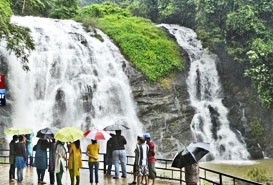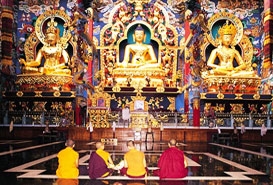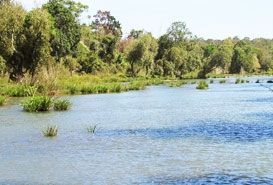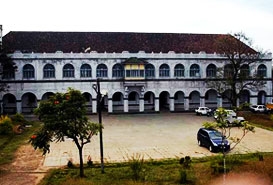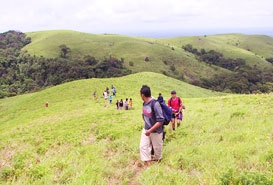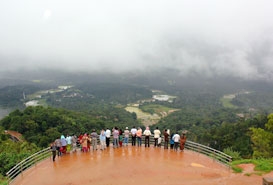Coorg, the Scotland of India, is renowned for its lush coffee estates, scenic landscapes, and serene Abbey Falls. A tranquil escape into nature’s lap. With 34 years of expertise, Indian Holiday brings you the best-customised tour packages and trusted local support, ensuring a journey as vibrant and diverse as Karnataka itself.
Still, wondering why Indian Holiday is your best choice? Read This: Your Complete Guide to Stress-Free Group Travel with Indian Holiday How to Plan a Stress-Free Family Vacation with Indian Holiday
Coorg located in the Indian state of Karnataka, is a beautiful hill station well known for its coffee plantations and its breathtaking beauty. Tour to Coorg District is now a popular weekend tour option for many residents of Bangalore and other parts of Karnataka. Madikeri, the headquarters of the Coorg District is the most visited place on Coorg Tour. Surrounded by verdant plantations and crisscrossed by the rivers Kaveri and Laksmanatirtha, Coorg is picture postcard beautiful.
Check out Karnataka tour packages, Badami tour packages, Chikmagalur tour packages, Kabini tour packages, Srirangapatna tour packages
The tribals or the Adivasis, are the oldest inhabitants of India and for the record, 4.14% of the 67 odd million Adivasi population of India live in the Southern Region scattered across the Western Ghats Mountain ranges covering the states of Karnataka Tamil Nadu and Kerala.
Out of the 73 tribal communities recognized by the government as Scheduled Tribes; 15 are common to all the 3 states- Tamil Nadu, Kerala and Karnataka and account for a population of 28,10,852. Of these a sizeable 1.916 million are residents of Karnataka. The Coorg District accounts for a heavy concentration of tribal population; 90% of the tribes in Coorg subsist on their traditional economic system of hunting and gathering minor forest produces besides attempting subsistence farming.
Check out Sakleshpur Tour Packages, Coorg tour packages, Nagarhole National Park Tour Packages
However, a part of the tribal life and culture in Coorg in India nowadays has become more or less homogeneous to the rural life of Coorg in general. The tribal life and culture in Coorg Karnataka is best reflected in their fairs and festivals. Much of the fairs and festivals in Coorg concern the worship of local deities. The harvest festival- Huthri is also an important name on the festival map of Coorg.
Bhagavati (Povvedi) and Ayyappa (or Shasta) are the most commonly worshipped deities. It is common for the people of two or three villages to get together in celebrating the festival of a village deity, which can last for seven to twenty-one days.
Browse through our Coorg tour packages from Chennai, Chikmagalur tour package from Hyderabad, Gokarna tour packages from Hyderabad, Gokarna tour packages from Mumbai
Coorg Tour Packages
- Price On RequestPrice On RequestPrice On RequestFrom ₹77,000 Per Person
Things To Do in Coorg
Why Book With Us
35+
Years of Travel Experience
100+
Travel Experts To Assist You
03+
Million Satisfied Guests
Ministry
of Tourism Accredited
- 5/5 Rating:
- 4/5 Rating:







